From filling empty spots in the garden to adding bursts of color, grow these reseeding annuals that bloom again and again!
Self-seeding plants are nature’s little overachievers—they bloom, drop seeds, and come back stronger without you lifting a finger!
Of course, not every annual has this magical ability, but many do when given the right conditions. Take a glance at these reseeding annuals that bloom again and again.
Reseeding Annuals that Bloom Again and Again
1. Calendula
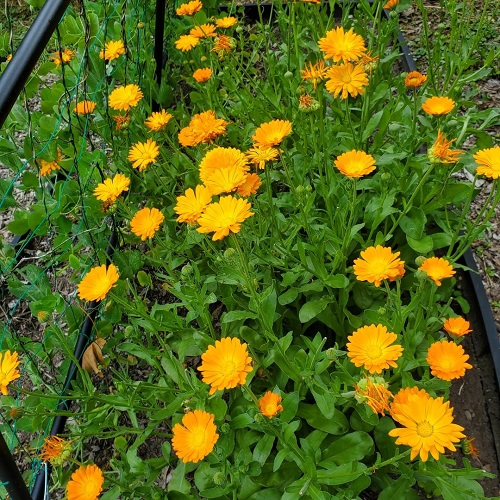
Botanical Name: Calendula officinalis
USDA Zones: 2-11
Calendulas don’t just look pretty in the backyard—they’re also edible! Their cheerful orange and yellow flowers aren’t just eye candy; they’re also popular in herbal remedies. The best part about this hardy flowering plant is that it self-seeds. However, you must ensure there is enough space for them in your garden.
They can thrive in partial shade as well as full sun and prefer well-draining soil.
2. Zinnia
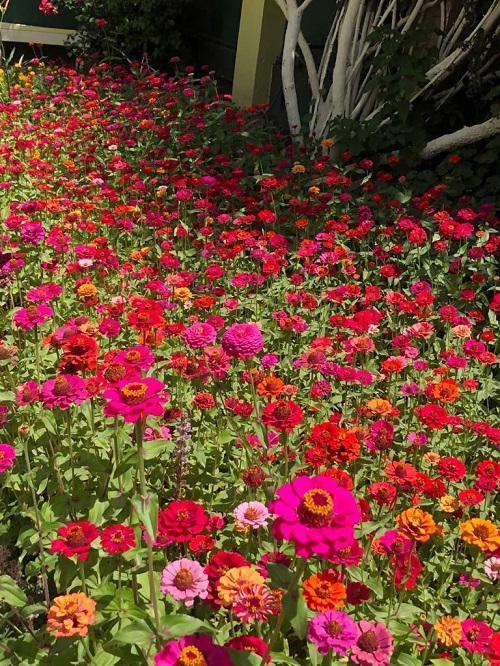
Botanical Name: Zinnia spp.
USDA Zones: 3-10
Zinnias are one of the easiest flowers to grow. Available in an array of dazzling colors, sizes, and shapes, these easy-going flowers are pollinator favorites. You can plant them either in masses or in small groups for the perfect gardenscape.
They don’t ask for much—just sunlight, well-draining soil, and a little space to breathe. It’s best to keep the soil moist until your plants are established.
3. Spider Flower
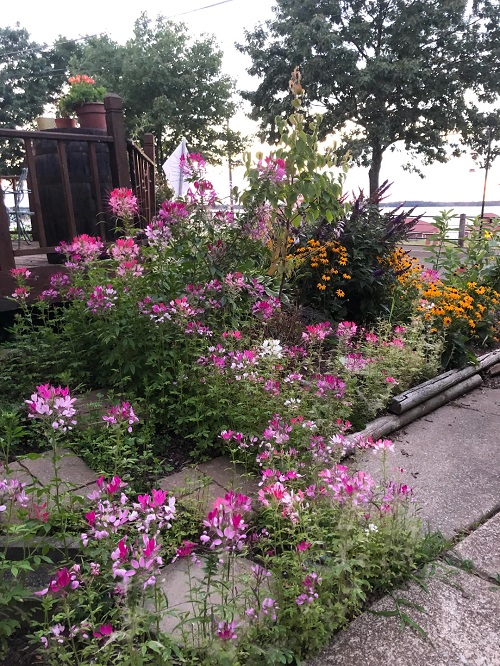
Botanical Name: Cleome
USDA Zones: 10-11
Also popular as the Rocky Mountain Bee Plant or Stinking Clover, this unique annual features delicate, spider-like flowers in white, purple, and pink. While it’s not the most fragrant, butterflies and hummingbirds can’t resist its charm!
It may take its time to bloom, but once established, it reliably reseeds for seasons to come.
4. Sweet Alyssum
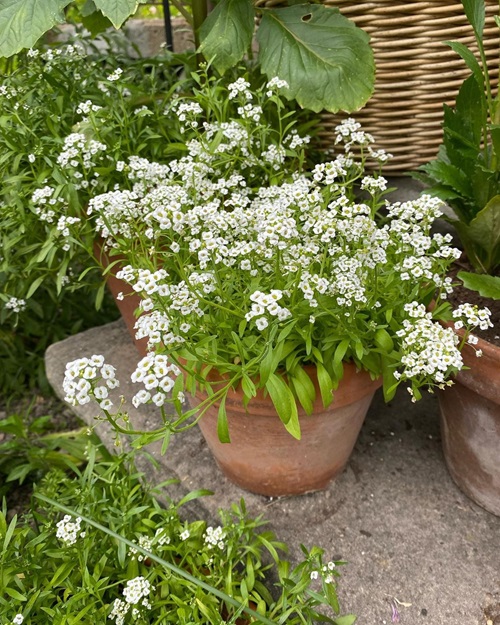
Botanical Name: Lobularia maritima
USDA Zones: 5-9
If you’re looking for a plant to gracefully edge your flower beds, Sweet Alyssum is a perfect choice. This is yet another annual with white and purple flowers and is a favorite for various pollinators. During summer, you should cut back these plants to keep them flowering for longer.
Come winter, let them be. When spring rolls around, you’ll find plenty of self-sown seedlings waiting to take over your garden again!
5. Plumed Cockscomb
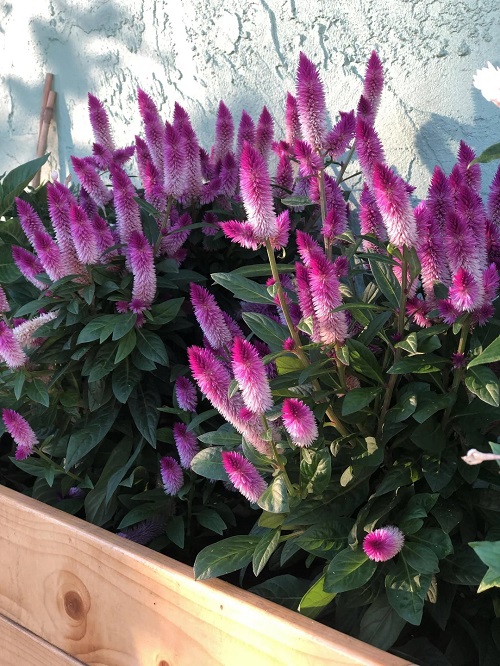
Botanical Name: Celosia argentea
USDA Zones: 2-11
Not only does this flowering plant self-seed more prolifically than most others on this list, but it also showcases individual burgundy flowers. Each of these has multiple feathers jutting out. Growing up to 2 to 4 feet tall, it prefers well-draining soil but won’t throw a fit if the soil is a bit dry or porous.
Give it full sun, and it will reward you with flame-shaped blooms that thrive in heat and humidity.
6. California Poppies

Botanical Name: Eschscholzia californica
USDA Zones: 6-10
Living up to its name, this annual is the state flower of California and a staple in the western US. From rocky slopes to sandy grasslands, it thrives in places where most plants wave the white flag. With their cup-shaped, golden-orange blooms, these tough little flowers are a perfect fit for hot, dry sites with poor soil.
Fact: In zones 8-10, it is considered a short-lived perennial.
7. Love-in-a-mist
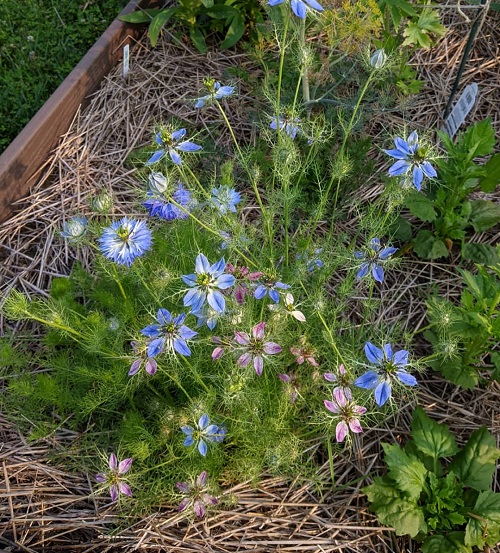
Botanical Name: Nigella damascena
USDA Zones: 2-11
A list of reseeding annuals just wouldn’t be complete without Nigella! This classic flowering annual features beautiful individual flowers that bloom over airy foliage. Even the spent flowers are great for drying in bouquets as they transform into seed capsules, which have an interesting egg-like shape.
8. Snapdragons
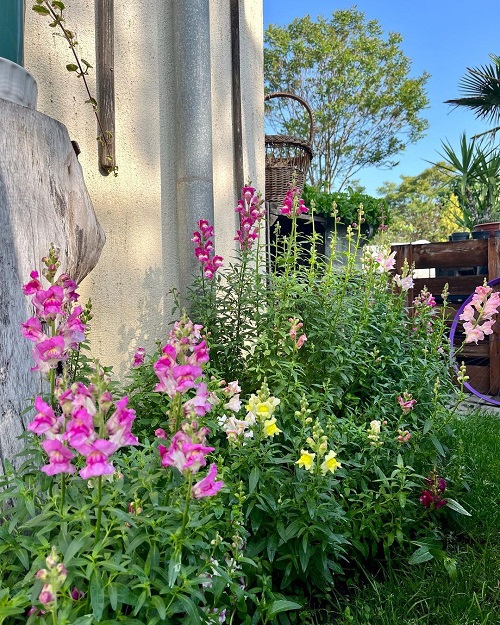
Botanical Name: Antirrhinum majus
USDA Zones: 7-11
Snapdragons are the cool-weather charmers of the garden, blooming their hearts out in spring and fall. If you can hold yourself back from cutting any flowers, they will go to seed. You will then find a lot of new seedlings the following fall!
Pro tip: Some of the best varieties of snapdragon that you grow are ‘Rembrandt’ and ‘Night and Day.’
9. Borage
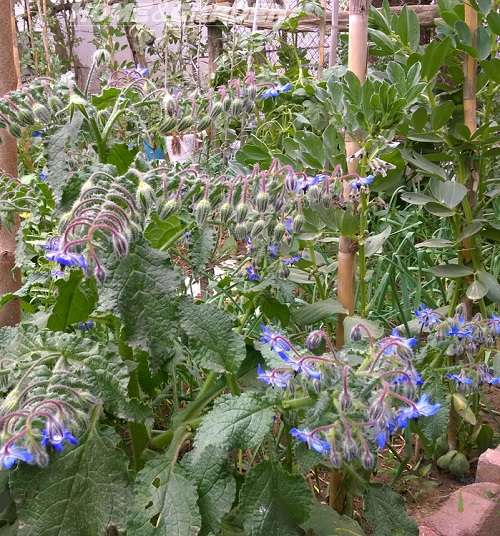
Botanical Name: Borago officinalis
USDA Zones: 2-11
Also called “starflowers,” borage showcases vibrant, blue flowers and can thrive in nutrient-deficient soils. Though it prefers a good amount of sunlight, it can live well in partial shade, too.
Besides self-seeding effortlessly, its blue flowers and fuzzy gray-green leaves are actually edible if taken in small quantities!
10. Cosmos
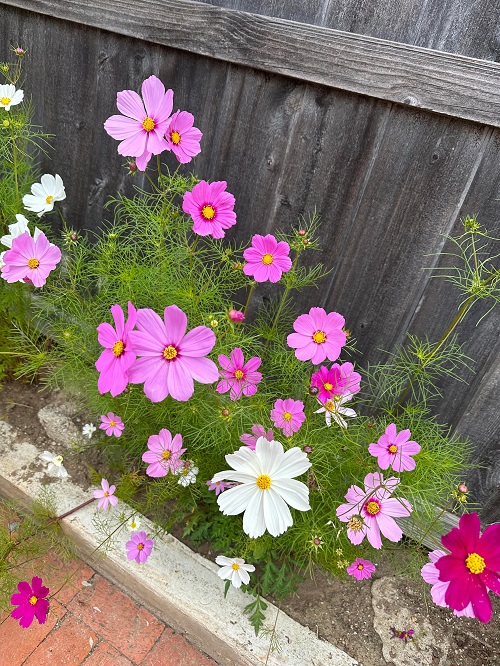
Botanical Name: Cosmos bipinnatus
USDA Zones: 2-11
If you want the best combination of hardy and beautiful for a flowering annual in your garden, pick the Cosmos! Besides the showy pink and more colorful blooms, these low-maintenance plants can thrive in almost any soil condition.
Once they bloom, they set seed quickly, ensuring a steady supply of new flowers every season!
11. Nasturtium
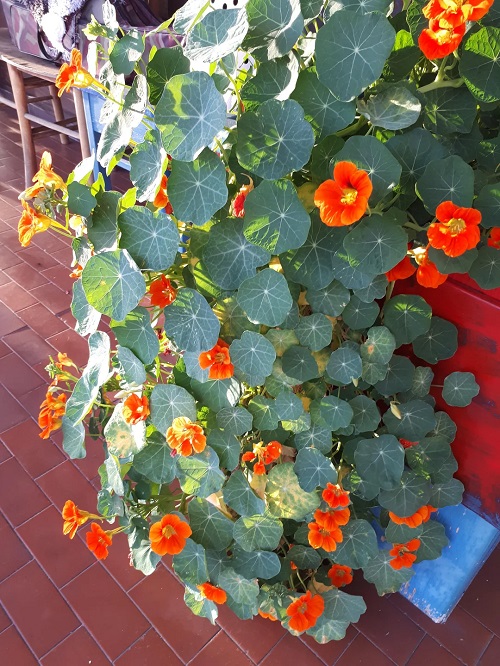
Botanical Name: Tropaeolum
USDA Zones: 2-11
Nasturtiums are the ultimate edible flower—their bright, cheerful blooms and lily pad-like leaves have a peppery kick, perfect for salads. These fast-growing plants thrive in poor soil and full sun.
They reseed easily, but if you want to speed things up, collect the round, pea-like seeds and scatter them in early spring for a head start.
So, which of these gorgeous annuals are you planning to add to your flowerbeds next? Let us know in the comments below!


